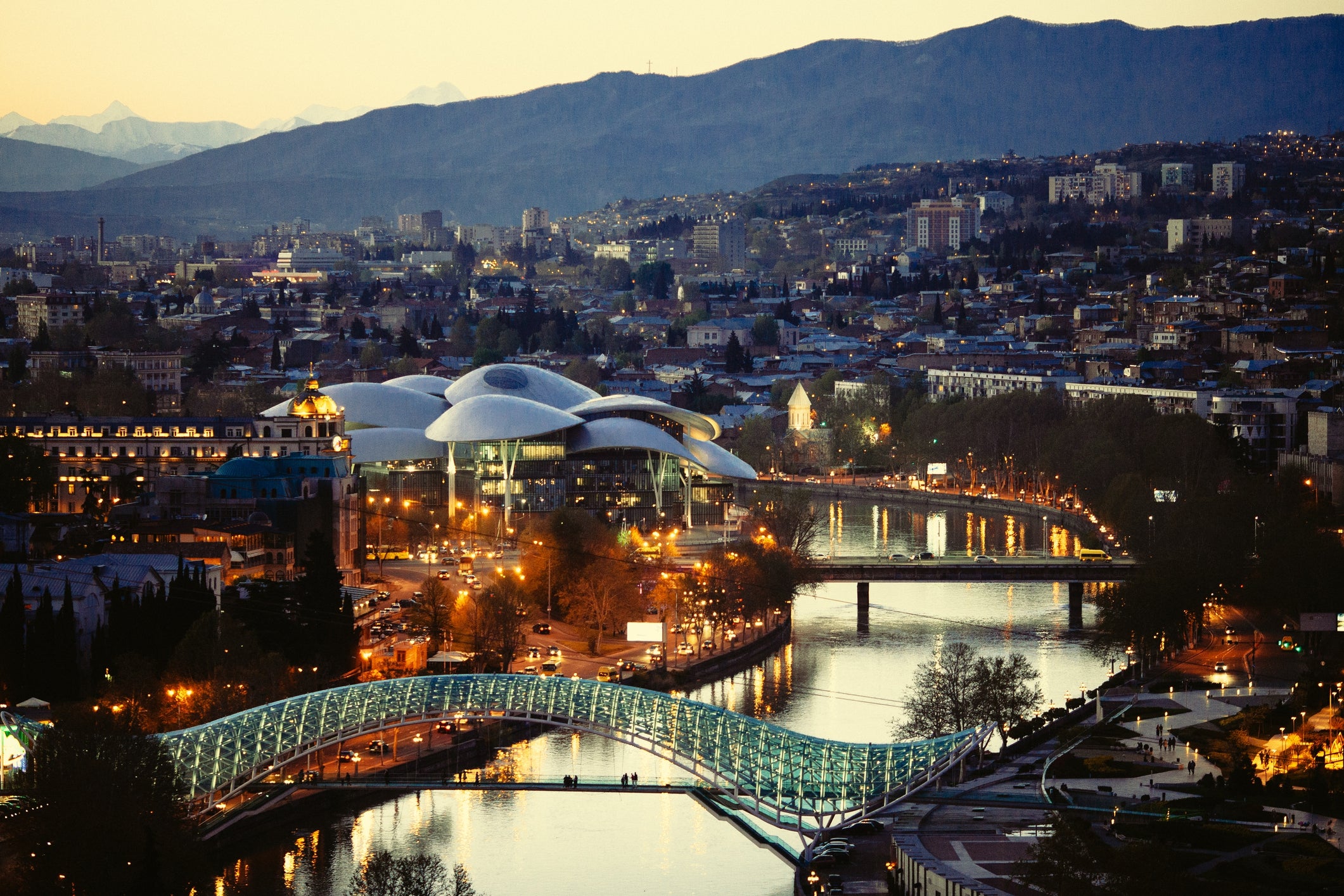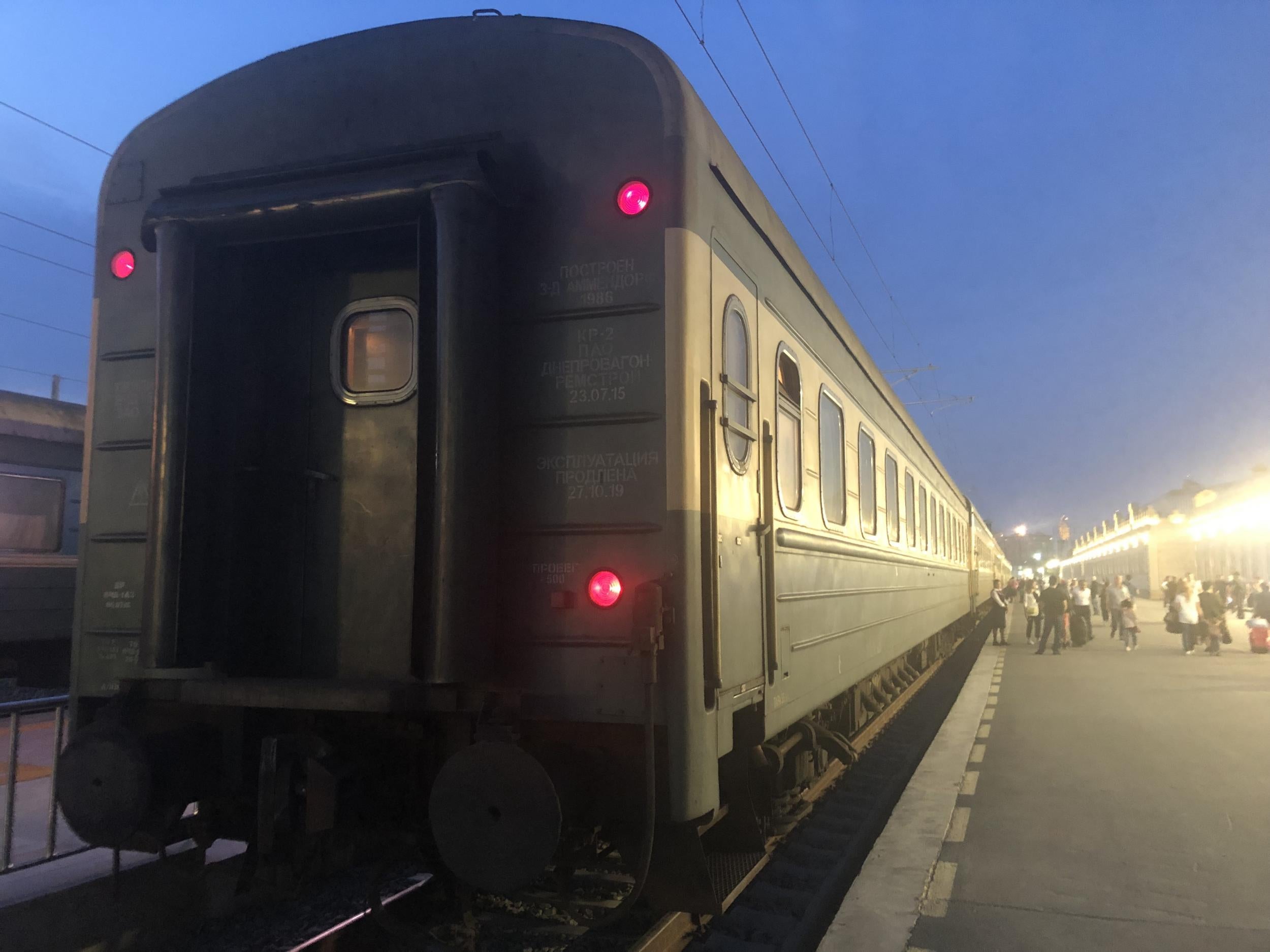Analogue travel is alive and well in Georgia
The Man Who Pays His Way: It all started with a midnight train to Georgia

Your support helps us to tell the story
From reproductive rights to climate change to Big Tech, The Independent is on the ground when the story is developing. Whether it's investigating the financials of Elon Musk's pro-Trump PAC or producing our latest documentary, 'The A Word', which shines a light on the American women fighting for reproductive rights, we know how important it is to parse out the facts from the messaging.
At such a critical moment in US history, we need reporters on the ground. Your donation allows us to keep sending journalists to speak to both sides of the story.
The Independent is trusted by Americans across the entire political spectrum. And unlike many other quality news outlets, we choose not to lock Americans out of our reporting and analysis with paywalls. We believe quality journalism should be available to everyone, paid for by those who can afford it.
Your support makes all the difference.Zaza was his first name. And as we slalomed down a narrow, winding valley in southern Georgia, he insisted Schumacher was his second.
The taxi driver shared a passion for speed with the German motor-racing legend. But last Saturday afternoon he was a pit-stop short of glory, due to running low on fuel. So his ancient Opel coasted for at least half the journey to the small city of Akhaltsikhe: Formula 0.5, if you like.
Zaza had adopted the persona of the German racing driver for a reason. Earlier, he had wandered off from his vehicle at the makeshift car park that serves the astonishing monastery of Vardzia – hewn from a cliff face in the ultimate act of devotion (the monastery, not the car park). Maybe he wanted to be alone.
A trio of policemen manning the roadblock that protected the Unesco World Heritage site shook their collective heads then urged me to drive his car through their roadblock to search for him.
When finally I tracked Zaza down, my appointment with the last bus of the night to the city of Kutaisi was in jeopardy. Which was why Zaza steered two tricky courses at once. He simultaneously threaded through walls of rocks bearing the scars of tectonic restlessness while, depending on the gradient, alternating between third gear and neutral.
I felt slightly like a hostage, a feeling intensified by the splintered windscreen that made it appear that the last front seat passenger had taken a bullet.

My day had begun disagreeably early with the gruff instruction “Passport!” at a frontier post at the Azerbaijan-Georgia border. As dawn rolled across the Caucasus, a procession of officials perused my papers and prodded my baggage. They repeated this analogue process with every passenger through all seven carriages. The delay meant the midnight train to Georgia arrived in the capital, Tbilisi, close to midday.
I missed my onward train connection, which turned out to be the best possible result. A minibus was leaving for Akhaltsikhe in, well, just the time it took to devour a dish of aubergine mixed with what seemed to be the entire garlic production of the Caucasus. Sorry, fellow passengers.
Driven by someone I take to be another member of the Schumacher family, only with better access to fuel, we overtook the slow train to the west somewhere around Stalin’s home town of Gori, and continued at such a pace that I arrived in Akhaltsikhe in time to reach Vardzia and make it back for the 6.10pm bus.
When Zaza’s Opel spluttered into the bus station, it turned out that the 6.10 was a figment of the timetable painter’s imagination (yes, schedules are works of art here). Zaza was keen for me not to continue with my journey but instead to spend the evening drinking with him.
But here is Dominic, who needs to be in Kutaisi tonight and will coax his Mercedes “Sprinter” there in return for the cost of the fuel. So off we go, scooping up prospective passengers along the way, then jostling with juggernauts travelling at terrifying speed.
Halfway down an enormous descent, a disconcerting signpost read “Wrecking Cul-De-Sac”. (Which, some might say, is a good approximation to Brexit.)
For journeys in this part of the world, the internet is of little use. Even in the unlikely event that you can find a mobile phone signal, online travel information for western Georgia barely has the status of rumour. Instead, you just ask.
Thank goodness analogue travel is still available in this digital age, and only 2,000 miles from Britain. Should your faith in fortune and human nature need restoring, just start the day in Georgia and see what happens.
Join our commenting forum
Join thought-provoking conversations, follow other Independent readers and see their replies
Comments